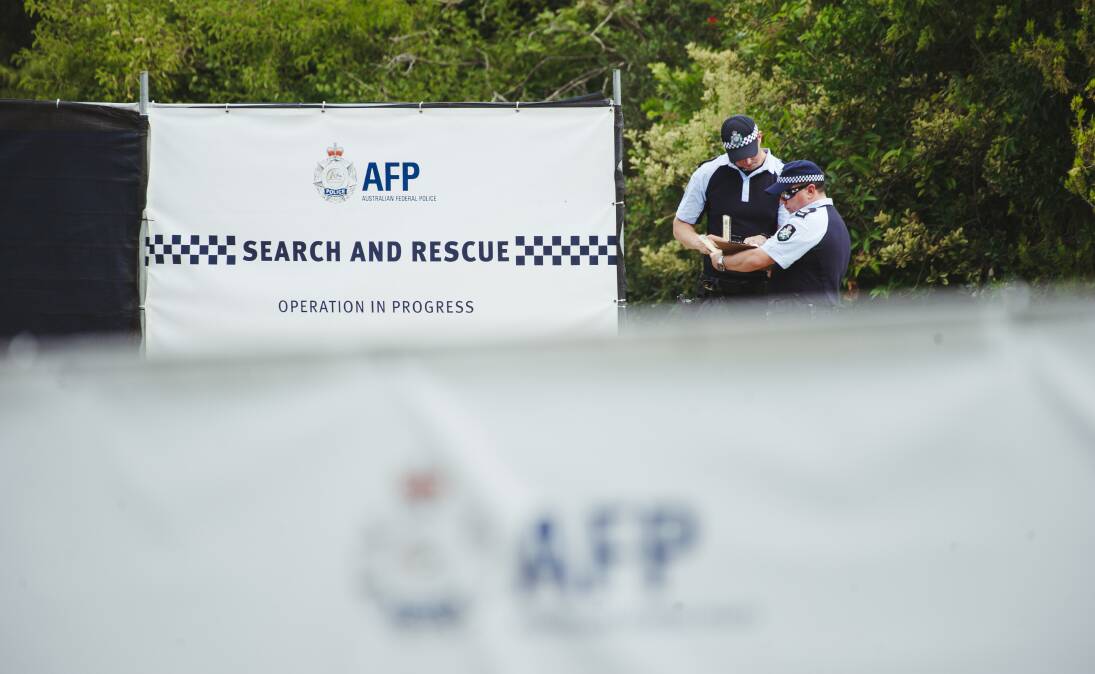
A psychotic killer could be detained for up to 30 years over a terrifying attack in which he nearly beheaded a housemate and tried to murder two other people at his Page home.
Wajid Kakar, 37, faced the ACT Supreme Court on Thursday in relation to the frenzied February 2021 onslaught, which one survivor has likened to a horror movie.
Justice Belinda Baker found him not guilty, by reason of mental impairment, of murder and two counts of attempted murder.
She said she would have sentenced the refugee, who posed "a grave risk" to the safety of the community, to three decades behind bars had he not been acquitted.
That nominated term effectively now becomes the maximum period of time Kakar, who suffers from schizophrenia, can be detained for mental health treatment.
Justice Baker outlined how, on a Saturday morning, Kakar armed himself with a sharp object, which was most likely a meat cleaver, and barged into the bedroom of housemate Michael Allen Clement Williams.

He used the weapon to repeatedly stab and "chop" at Mr Williams, 34, nearly severing the victim's spinal cord as he inflicted fatal injuries.
The loud noises generated by this attack woke fellow housemate Simon Phillip Tyler, who had been asleep with Asha Bixenta Miller following a date the previous night.
Kakar burst into Mr Tyler's room, brandishing a large butcher's knife and a meat cleaver as he declared "I'm going to kill you" or "I'm going to slash you".
He then began striking Mr Tyler, causing 44 major lacerations as that victim cowered and pleaded for his life.
The 37-year-old also turned on Ms Miller, who sustained such a deep head laceration she caught a glimpse of her own skull in a mirror.
While Kakar was focused on Ms Miller, who was eventually dragged into the kitchen, a bloodied Mr Tyler managed to flee from the house and alert a neighbour to the chaos.

That person rendered first aid and called police, who were confronted upon their arrival by Kakar.
The mentally ill attacker, who had used his knife to injure himself by this stage, defied directions to drop his weapons and instead charged at police in the driveway.
Officers had to Taser him repeatedly and even use a riot shield in order to disarm and restrain him.
Police then entered the Braine Street sharehouse to find Ms Miller clinging to life in a pool of blood and Mr Williams dead in his bedroom.
Both survivors were rushed in a critical condition to hospital, where doctors expected Mr Tyler, then aged 28, to die.
Remarkably, medical staff managed to save both him and Ms Miller, who was 20 at the time.

"There is no doubt that Mr Tyler and Ms Miller would have died without surgical intervention," Justice Baker said on Thursday.
Both survivors, the judge noted, would now have to live with permanent scarring and inevitably serious psychological injuries.
Kakar, who was known to be "aggressive and confrontational" around the house, claimed to have been suffering from "total amnesia" at the time in question.
While forensic psychiatrist David Greenberg expressed scepticism about this, Justice Baker said four experts were "of the unanimous view" Kakar had a mental impairment defence available as a consequence of his schizophrenia.
The judge ultimately accepted this, finding Kakar had been unable to control his conduct and had not appreciated it was wrong.
She noted there was uncertainty about Kakar's personal circumstances, with the killer having given "conflicting" accounts of matters that included his country of origin, how many children he had, and whether or not his father had been beheaded by the Taliban.
Justice Baker also said Kakar had expressed only limited remorse, having remarked that he was "very sorry for the guy".
The experts were ultimately of the opinion that Kakar required long-term psychiatric care, without which Justice Baker said the killer would pose "a grave risk to the community".
"His conduct was entirely unprovoked, and resulted in the death of one victim and serious injury to two other victims," Justice Baker said.
The ACT Civil and Administrative Tribunal, which will now take on the management of Kakar's detention, must review his status within seven days.
If the tribunal does not order his release, it must continue to review his detention monthly.
Justice Baker told those in court on Thursday that the tribunal would consider, in particular, "the danger which experts conclude [Kakar] poses to either himself or members of the community".







